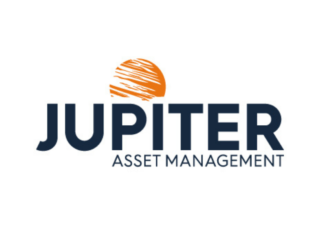Adam Darling and Harry Richards
Fully embedding ESG factors into a corporate bond investment philosophy means considering longer-term risks to issuers that the market may currently be under-pricing – or even ignoring.
The concept of environmental, social and governance factors – the “E”, “S” and “G” of ESG – can, of course, be expressed in a snappy three-letter acronym. In our view though, to do so over-simplifies what is a broad and subtle categorisation of risks to analyse and manage, and which vary markedly from one sector to another.
The value of seeking to pre-empt emerging ESG risks is hard to overstate; a sudden deterioration in risk factors assessed within a robust ESG framework can have potentially terminal consequences for a business. In practice, we seek to identify and manage tail risks whether they are categorised in an ESG framework or otherwise. While much of the current public discourse focuses on the “E”, we would argue that it is every bit as important to pay sufficient attention to risks captured in the “S” and “G” factors.
In the current environment, it is the “S” of ESG that is perhaps most interesting. Some social risks are of course already prominent. In common with some of our peers, we have for example long been vocal on the topic of tobacco sector bonds. That a growing focus on ESG considerations could lead to greater challenges for the sector is a tail risk the market is increasingly coming around to accepting. But broader scrutiny of “S” factors is also changing, and we believe that the Covid-19 experience has accelerated underlying societal shifts which were already smoldering before Covid hit. A strong example is the sharp decline in social tolerance of tax avoidance, which has led to governments to apply growing pressure on businesses to pay their fair share in tax.
Combined with this increasingly global pushback against corporate exploitation of tax regimes is a broad acceptance that corporate tax more broadly must increase to pay for the economic damage of Covid. This transition from monetary to fiscal stimulus, while welcomed by many economists, will necessarily mean a larger role for government and more regulatory and political pressure on the private sector.
Governmental pressure on corporates also reflects signs of a potential re-balancing in the economic returns towards labour. The age of digital and technological innovation has led to disrupted labour markets and social tensions in developed economies which politicians can no longer ignore. Indeed, it is “S”-related considerations that are the primary drivers of changes to the perception and acceptance of tech-enabled companies in our societies. But while the behaviour of “digital polluters” is making newspaper headlines, it is less clear whether the associated credit risk is being appropriately priced by investors.
Closer scrutiny of social factors is not reserved for tech-enabled businesses. We have long identified, for example, the “stranded asset” risk embedded in commercial property as the shift away from bricks-and-mortar retail to online dis- rupts their customer base.
Another tenet of the integration of ESG factors is corporate engagement. We believe passionately in our responsibility to contribute to the promotion of ESG best-practice and have pro-actively engaged with the management of many businesses whose bonds we own, as well as those in which we are not holders.
We would argue that the financial services sector is an area deserving of still-greater scrutiny around governance risks. The recent travails of Credit Suisse with Archegos and the collapse of the specialist lender Greensill Capital over imprudent lending practices are two cases in point to demonstrate what can go wrong when the “G” of ESG is given insufficient attention. If the Covid-19 pandemic has changed many aspects of our daily lives, then one of its most significant legacies may be a radical reappraisal of the popular perception of the “right” balance between corporate profitability and social wellbeing. Unsurprisingly, this is a reality that has not been missed on governments.
Signs that further risks will emerge are there. Take for example recent changes to the Bank of England’s approach to corporate bond purchases, making climate factors a core consideration. We believe the importance of this development will make itself known only as and when credit market volatility rears its head once more. With the precedent for selective support now established, we would not be surprised if broader ESG considerations were incorporated into central bank mandates.
This is potentially game-changing. Absent central bank support in an environment of widening credit spreads, we believe there is scope for issues from ESG-challenged sectors to underperform significantly. As with many of the risks forming part of a broader ESG framework, time will tell how many investors have factored this latest development into their portfolio construction process.
This communication is intended for investment professionals and is not for the use or benefit of other persons, including retail investors. This communication is for informational purposes only and is not investment advice. Market and exchange rate movements can cause the value of an investment to fall as well as rise, and you may get back less than originally invested. The views expressed are those of the author(s) at the time of writing, are not necessarily those of Jupiter as a whole and may be subject to change. This is particularly true during periods of rapidly changing market circumstances. Every effort is made to ensure the accuracy of any information provided but no assurances or warranties are given. Issued in the UK by Jupiter Asset Management Limited, registered address: The Zig Zag Building, 70 Victoria Street, London, SW1E 6SQ is authorised and regulated by the Financial Conduct Authority. Issued in the EU by Jupiter Asset Management International S.A. (JAMI, the Manage- ment Company), registered address: 5, Rue Heienhaff, Senningerberg L-1736, Luxembourg which is authorised and regulated by the Commission de Surveillance du Secteur Financier. No part of this commentary may be reproduced in any manner without the prior permission of JAM. 27468





